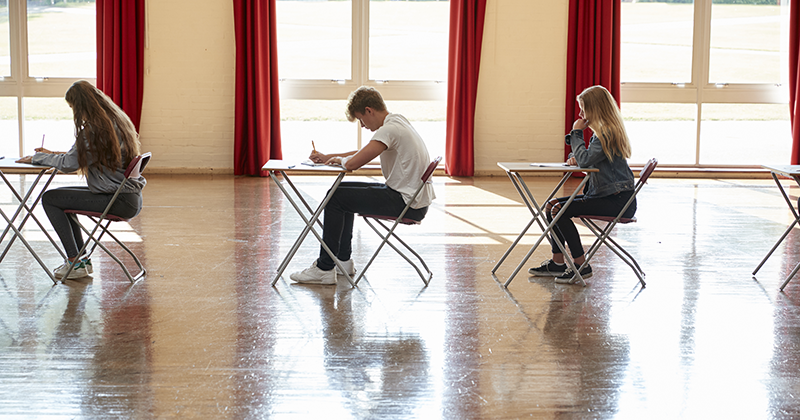Ofsted should focus equally on how schools are meeting the “holistic needs” of pupils as they do on results, a new report which sets out how classrooms can be at the heart of a new Sure Start revolution has said.
Analysis by the Institute for Fiscal Studies showed Sure Start – a network of ‘one-stop shops’ for families with children under five years old – “greatly improved disadvantaged children’s GCSE results”.
At its peak under the last Labour government, spending cost £2.5 billion per year, but has since fallen by more than two thirds with many closed, or integrated into family hubs.
Revitalising the programme is understood to be something Labour is seriously considering, but with a bigger role for schools.
A report today by the Centre for Young Lives, run by former children’s commissioner Anne Longfield, and the Child of the North project, looks at how that might work. Here’s what you need to know …
1. National strategy with schools at heart
The report says schools are a “consistent point of contact” for children and young people and are “well-positioned” to act as hubs for services.
It adds schools “have become anchor institutions” within many poorer areas, especially after Covid – developing “trusting relationships with communities”.
The report flags “innovative approaches being adopted which show how ‘outside school-gate services’ such as dental care, mental health services, and youth work can be brought inside educational settings”.
Using schools would also “utilise existing resources”. And wrapping this support around them would “boost school readiness, reduce absenteeism and tackle the impact of poverty”.
Longfield added “we can place schools at the heart of a fresh start for Sure Start”.
2. Ring-fence funding for hub network
The report calls for ring-fenced cash for schools so they can access the programmes, activities and services that “meet the needs of local children and families”.
A national network of “hubs” in schools would provide breakfast clubs, before- and after-school provision and holiday clubs, in-school dedicated health and support teams, provision or signposting to other out-of-school youth, adult learning, and community provision.
However, this proposal is not costed. The report just states “adequate funding should be allocated”, but they should focus on the most disadvantaged areas first.
The Labour party has already committed to funding new youth hubs to tackle serious violence, alongside universal breakfast clubs and a mental health support team in every school.
3. Link up schools with other services
The report wants to “encourage holistic and collaborative working by co-producing connected services with children, young people, families, and the wider community”.
Examples include school staff and parents working with other providers such as charities, health services, businesses, and local authorities to produce positive change in their communities.
The report names schools already taking “innovative, creative” approaches to early intervention. They include the eight primary schools running the West End Children’s Community, in Newcastle, the Surrey Square Primary School, in south London, and Oasis Academy Hadley, in Enfield.
4. Ofsted should focus on ‘holistic needs’
The report also sets out how government must tweak external drivers to affect change.
For instance, it states Ofsted criteria should include how schools link with their communities, external agencies and look at “how well they attend to the holistic needs” of youngsters.
“We recommend that schools move to a model of holistic support and are judged and rewarded on this basis by Ofsted,” the report states.
They say this should be given “equal weight to academic attainment and attendance”.
Another suggestion is for integrated care boards, the commissioning bodies for health and social care, to include education leaders.











